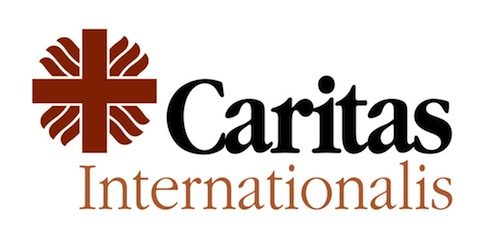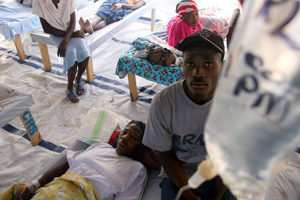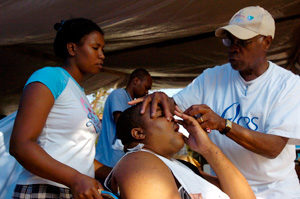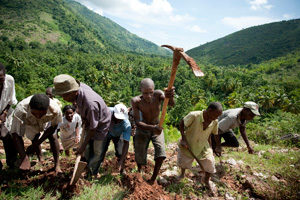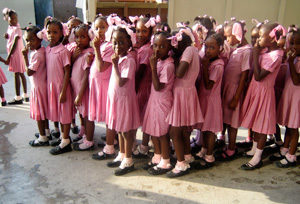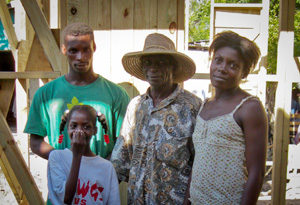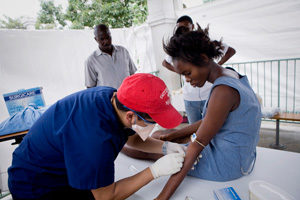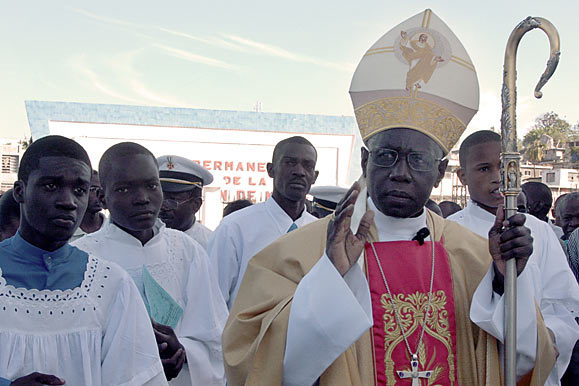
Read in French or Spanish Homily of Cardinal Robert Sarah, President of Pontifical Council Cor Unum Port-au-Prince, Haiti (Hebrews 2:14-18; Psalms 105:1-2, 3-4, 8-9; Mark 1:29-39) Cher tout people Haïtien: Moin poté la pé ak Ké Kontan Gran Mèt la pou nou. Dear Haitian people, I bring you the peace and joy of the Lord. Exactly ...

